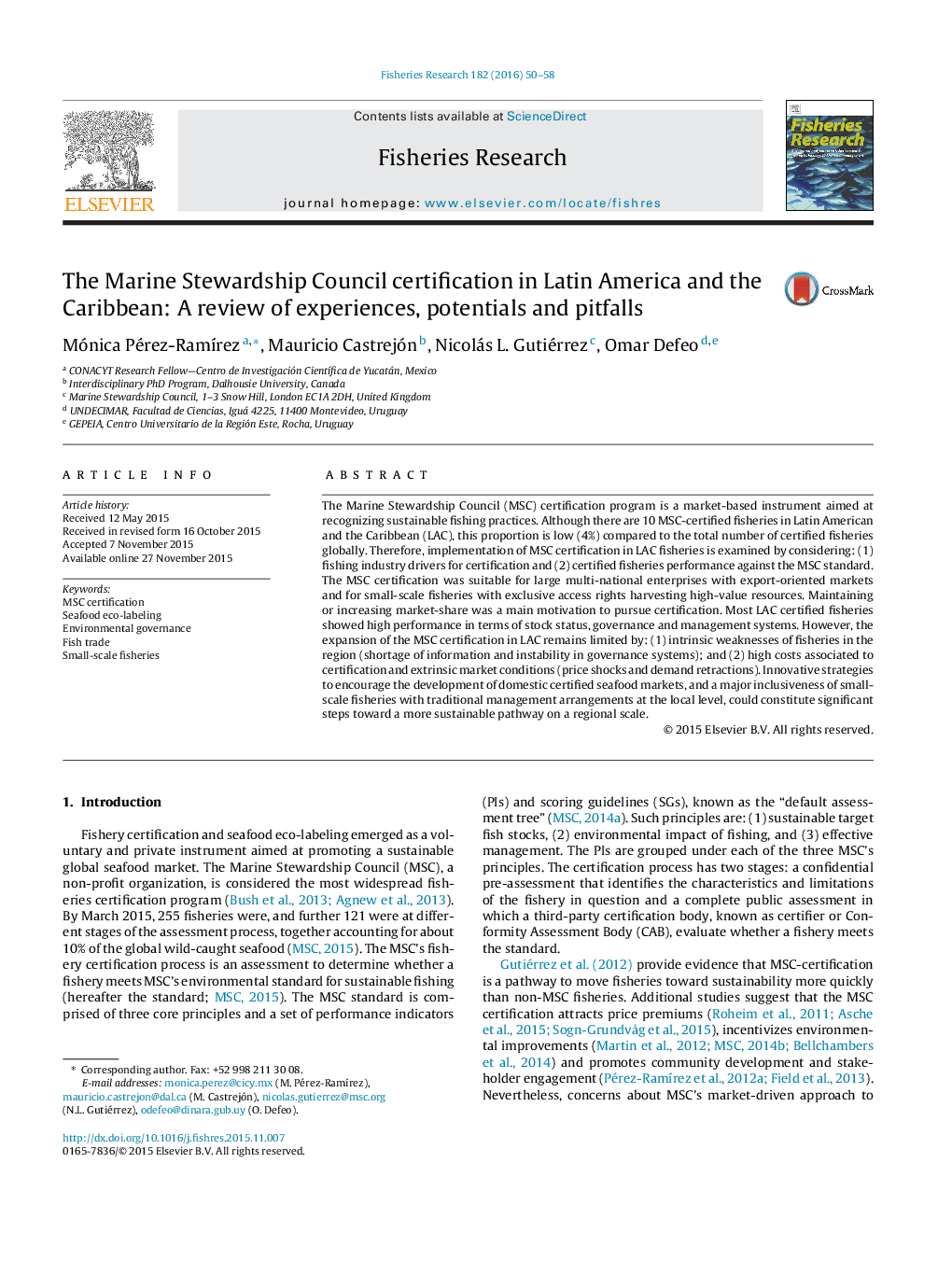| Article ID | Journal | Published Year | Pages | File Type |
|---|---|---|---|---|
| 4542666 | Fisheries Research | 2016 | 9 Pages |
The Marine Stewardship Council (MSC) certification program is a market-based instrument aimed at recognizing sustainable fishing practices. Although there are 10 MSC-certified fisheries in Latin American and the Caribbean (LAC), this proportion is low (4%) compared to the total number of certified fisheries globally. Therefore, implementation of MSC certification in LAC fisheries is examined by considering: (1) fishing industry drivers for certification and (2) certified fisheries performance against the MSC standard. The MSC certification was suitable for large multi-national enterprises with export-oriented markets and for small-scale fisheries with exclusive access rights harvesting high-value resources. Maintaining or increasing market-share was a main motivation to pursue certification. Most LAC certified fisheries showed high performance in terms of stock status, governance and management systems. However, the expansion of the MSC certification in LAC remains limited by: (1) intrinsic weaknesses of fisheries in the region (shortage of information and instability in governance systems); and (2) high costs associated to certification and extrinsic market conditions (price shocks and demand retractions). Innovative strategies to encourage the development of domestic certified seafood markets, and a major inclusiveness of small-scale fisheries with traditional management arrangements at the local level, could constitute significant steps toward a more sustainable pathway on a regional scale.
Graphical abstractFigure optionsDownload full-size imageDownload as PowerPoint slide
